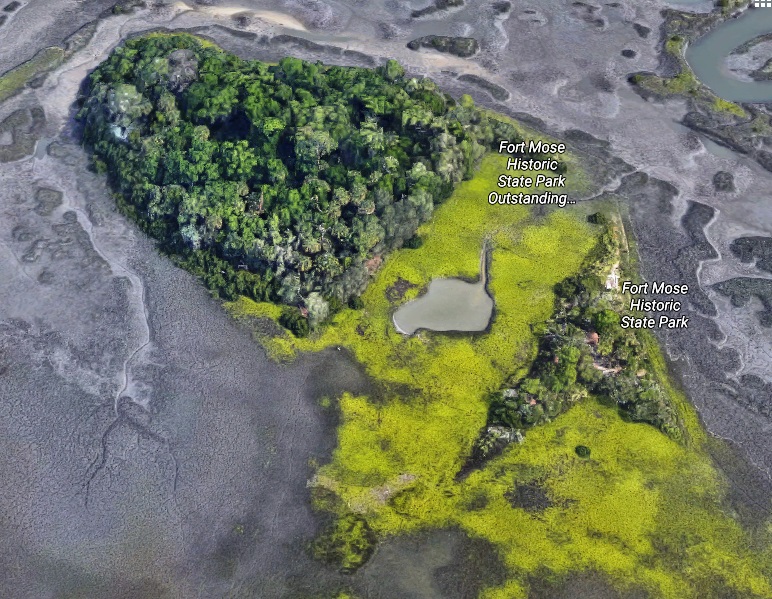BE A PART OF HISTORY IN SUMMER 2021!

NOW ACCEPTING APPLICATIONS FOR
THE 2021 UNIVERSITY OF FLORIDA
HISTORICAL ARCHAEOLOGICAL FIELD SCHOOL
Summer Session B: June 28 – August 6
at
FORT MOSE
(1752-1763)
Fort Mose Historic State Park
(St. Augustine, Florida)
Fort Mose
Gracia Real de Santa Teresa de Mose, or Fort Mose, was a fortified settlement founded in 1738 by the Spanish governor of Florida, and populated by recently emancipated Africans as a defensive element to St. Augustine. The leader was an escaped African known as Francisco Menendez.
The first fort was attacked and destroyed by the British under General Oglethorpe in 1740 but was reestablished in 1748, and a second fort built in 1752. It was ultimately abandoned in 1763, when Florida was ceded to the British at the end of the Seven Years War. When evacuated in 1763 to Cuba, the colony inhabitants consisted of 31 men, 34 women, and 22 children.
Fort Mose is recognized as the earliest free African town in the Western Hemisphere, and a source of pride and importance for the local and greater African American community.
Rediscovered archaeologically in 1971, the second fort saw formal excavations in 1987-88.
The 2021 field school continues the work begun in 2019, which represents the first intensive investigation of the settlement since the 1980s.
We will be excavating within an African village and military fort, dating some 271 years ago.
We also will encounter and explore Mission period and prehistoric Native American occupations
2021 Research Goals:
Document lifeways of this African community, including their religious life in a Catholic dominated world. Many of the inhabitants were kidnapped directly from Africa, and may have retained their old religious beliefs in this new land. Foodways, gender dynamics, and its life as a military outpost will all be explored. We will also be assessing the impacts of sea level rise on this coastal site, to determine its viability as an accessible archaeological resource in the near future.
Student Expectations:
Students will receive training in controlled excavation, field survey, instrument mapping, artifact identification, and artifact analysis. There will also be a series of afternoon/evening lectures and assigned readings on Historical and African-American Archaeology. We will work Monday through Friday, with weekends off. You will have the option of staying at the field school residences during the weekends or returning to Gainesville (or elsewhere).Number of Students: enrollment will be capped at 14 students.
Priority for acceptance into the field school will be given to Junior and Senior Anthropology majors,
but Freshmen, Sophomores and non-majors are also encouraged to apply.
Tuition:
All students will be enrolled for nine credit hours (ANT 4823/4824).
Student Fees:
In addition to the standard tuition and fees payable to the Registrar’s, there will be an additional fee of $800 assessed per student, to cover the cost of all residential rents, meals, gasoline, artifact bags, and other miscellaneous supplies, as well as a cleaning fee for the residences.
Lodging:
Lodging will either consist of dorm rooms at Flagler College, or rental properties
in St. Augustine.
We only work weekdays, so you have the option to stay at the field school
residences on weekends.
Deadline for Application materials is Friday April 30, 2021
Late applications may be accepted, but in cases of limited seats, preference will be given to applications submitted prior to April 30
Download Copy of the Application: HERE
Send application, cover letter and letter of recommendation (from a Professor or Graduate Student/Instructor) to:
davidson@ufl.edu
or By Mail
Dr. James M. Davidson
Department of Anthropology
1112 Turlington Hall
P.O. Box 117305
University of Florida
Gainesville, FL 32611-7305
|